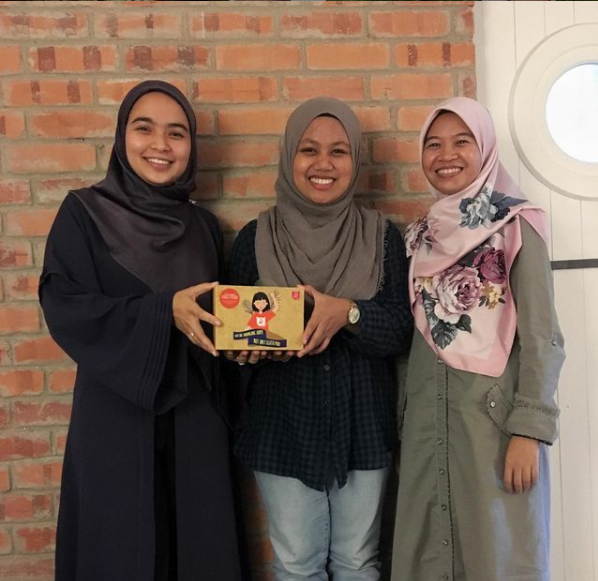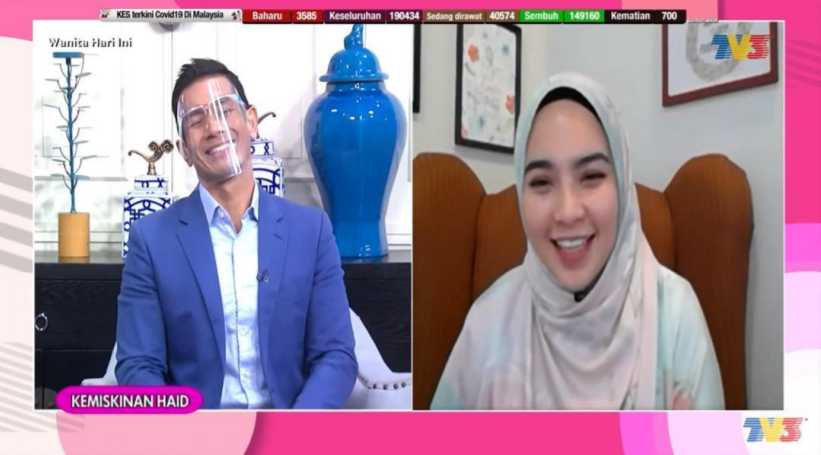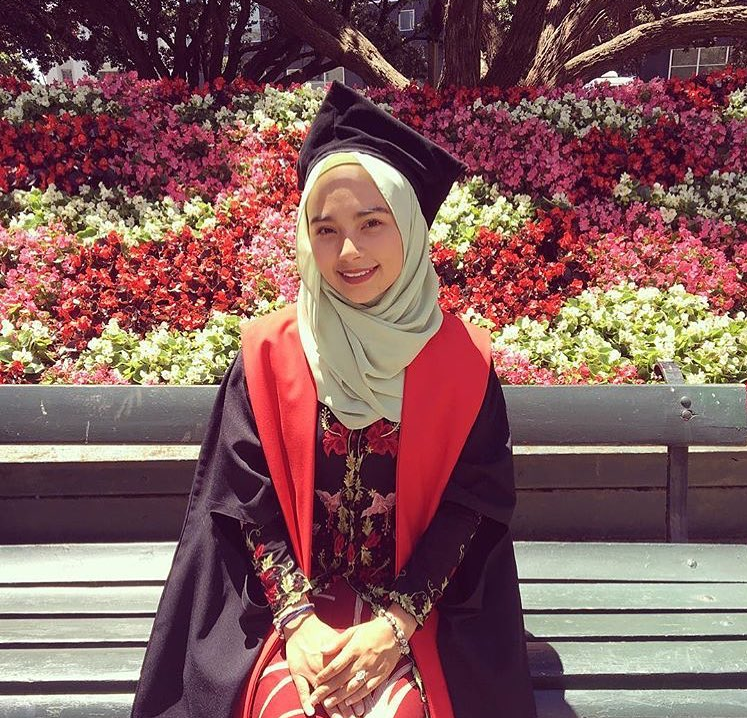By Nabila Natasha Osman
œIts okay to be a learner at any given time – Dr. Fatimah Alzahrah Binti Syed Hussien Al-Attas
These are the words of Dr. Fatimah Al-Attas that motivated me during an interview with her. Indeed, learning is for everyone regardless of age, social status, experience and background.
As such, lets get to know Dr. Fatimah Al-Attas who, herself, has inspired me and I believe many others with her outstanding works and achievements.
During this years Virtual Takrim Al-Akadimiyyin, held by Kulliyyah of Islamic Revealed Knowledge and Human Sciences (KIRKHS) in July, Dr. Fatimah Al-Attas was awarded Gold in the Community and Industry Partner category. Takrim Al-Akadimiyyin is a ceremony where academic staff and administrative workers were awarded for their significant contributions.
Community Engagements
It is Dr. Fatimah’s research on period poverty that most of the community engagements took place and are still taking place. There are various actors and stakeholders that she has crossed paths with in order to understand period poverty deeper from various lenses as well as to amplify the awareness of period poverty especially in Malaysian context.
She connects herself with researchers in a learned community both locally and internationally which allows her to understand the common underlying issue from various parts of the world. Additionally, she engages with industry players such as menstrual product companies.
Meanwhile at government and policy level, Dr. Fatimah has had the opportunity to meet with ministers and government officers to understand the situation of period poverty as well as sharing her research findings to create a bigger impact.
For instance, following her conversation with Federal Territory Islamic Religious Council (Majlis Agama Islam Wilayah Persekutuan or MAIWP), the council has started to grant free sanitary pads to food bank in Kuala Lumpur since June 2021.
Notably, a photo of former Minister of Religious Affairs, Datuk Seri Dr. Zulkifli Mohamad Al Bakri stocking sanitary napkins on the food bank store shelves went viral. This aid in breaking the taboo on the role of men in combating period poverty as men should get involved as well.

Besides, Dr. Fatimah is also active in her engagement with other local communities such as the grassroot actors, media and public. It was the result of her engagement with the NGOs and social enterprises that started the #PeduliMerah, a menstrual poverty movement in Malaysia.
Furthermore, she has been invited to several webinars to preach on period poverty. She also does interviews on period poverty mostly for media outlets that cater to Malay and English readers such as Wanita Hari Ini and Berita Perdana RTM or Prime Time News.

Not until recently, that period poverty made it to the Mandarin newspapers based on the interview done with Dr. Fatimah herself. It is in 2021 that Malaysians witness a big breakthrough of period poverty in the Malaysian media.
As Dr. Fatimah engages with the public and media, she herself learns from the community. Previously little has been done within the scholarly field and policy level in Malaysia and elsewhere on period poverty.
Through the engagements and synergistic effort from various players, the issue of period poverty were able to be brought forward. Thus, Dr. Fatimah’s research does not only proves to be meaningful but also brings more hope to the community.
Advice for fellow students
For Dr. Fatimah, as much as students should give their best in the examination, learning should be beyond grades. She shared some advice that encourages students to have a meaningful purpose in learning.
œFind every opportunity to make your classroom and learning meaningful by engaging beyond the text. Do not just think that it is for another examination.
She underlines the importance to ponder upon knowledge that is shared in the classroom, to reflect on how the knowledge gained in classes can help you see the world better, and equally important how it can impact you and your community.
Beyond classrooms and examinations, University co-curricular activities also play a significant role for students to develop their soft skills, interests and talents. It allows students to gain experiences that sometimes cannot be learned in a classroom setting.
As such, Dr. Fatimah encourages students to engage in co-curricular activities, not only because it allows students to have capabilities across diverse areas or beyond their academic performance but the time students spend for co-curricular activities will form part of the memories in their University days that they will remember and cherish.
One of Dr. Fatimahs earnest reminders that personally moves me the most is that œlife itself is beyond grades.
Inspiration
œWe rise by lifting others, a quote by Robert Ingersoll that Dr. Fatimah lived by. Through her experience and time spent collaborating with partners for her research, Dr. Fatimah is inspired by grassroot actors.
œEven though people dont know them, they are still doing the service they did for so long.
Despite efforts trying to help the community, some people condemn these efforts. Nonetheless, these responsible individuals keep going, to continue what they do to alleviate voices.
Dr. Fatimah is truly inspired from seeing everyday people that genuinely care about other people in the community.
Biography
If you are a Sociology and Anthropology (SOCA) student, you are most likely familiar with Dr. Fatimah Al-Attas who is not only a lecturer at the IIUM department of SOCA, but also a member of International Sociology Association and Malaysian Social Science Association.
Dr. Fatimah was a former undergraduate of IIUM majoring in SOCA who graduated with first class honours and secured the rectors list. Later, she continued her PhD in sociology at the Victoria University of Wellington in New Zealand for three and a half years.
While being a PhD student, Dr. Fatimah was active in guest lecturing and tutoring besides being a senior tutor at Victoria University of Wellington. She also did small jobs like invigilating and marking examination papers. It gave her a glimpse of life as an academic as well as opportunities to grow, not just in research areas.
Despite her current responsibility and being a young lecturer, she has done numerous publications and is active in research projects. Being an avid supporter of youth and women empowerment, one of Dr. Fatimahs research areas is on period poverty which started in 2019.
Currently, she is researching on Young Womens Menstrual Practices. She aspires to bring a positive impact to the community through her research projects.***
